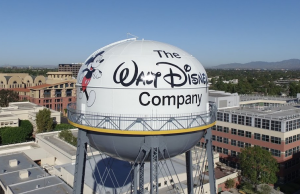
After more than 40 years of operation, DTVE is closing its doors and our website will no longer be updated daily. Thank you for all of your support.
Disney and Charter strike deal with eight channels dropped from line-up
 Disney and Charter Communications have struck a new carriage deal, ending a 10-day blackout but also highlighting the increasing challenges for pay TV in the US.
Disney and Charter Communications have struck a new carriage deal, ending a 10-day blackout but also highlighting the increasing challenges for pay TV in the US.
The battle broke out last month and saw Disney channels become unavailable to 15 million customers on Charter platforms, with many highlighting that the dispute represents the end game for the ailing US pay-TV market.
With both companies coming in for criticism from viewers, an agreement has now been forged with 19 Disney channels including ABC, FX and ESPN returning to Charter’s Spectrum set-up in its major market.
FXX, Nat Geo Wild dropped
However, eight Disney channels will not be returning to the second biggest cable operators in the US, including FXX, Nat Geo Wild, Nat Geo Mundo, Disney Junior, Baby TV, Disney XD, Freeform and FXM.
Disney CEO Bob Iger and Charter CEO Chris Winfrey described the deal as “an innovative model for the future” in a joint statement.
“This deal recogniess both the continued value of linear television and the growing popularity of streaming services while addressing the evolving needs of our consumers.”
The move, which came just in time for the return of Monday Night Football, will also see Charter’s Spectrum platform carrying the ad-supported version of Disney+ while ESPN+ will also be available to Spectrum TYV Select Plus customers.
Charter and Disney also agreed that when the upgraded ESPN streamer is launch over the next year or so it too will be available.
Charter said the deal allowed it to “maintain flexibility to offer a range of video packages at varying price points based upon different customer viewing preferences” but the pact highlights the tensions between streamer operators and legacy cable operators.
Context & background
Charter had gone on a PR offensive during the battle, claiming that Disney had been unwilling to consider innovative carriage arrangements and instead wanted to just push through aggressive price increases.
The pay TV firm has also suggested it may turn its back on pay TV altogether, claiming it has “reached the point of economic indifference with the current model.”
Disney countered by claiming it had suggested “creative ways” to solve the dispute, which came a month after Iger admitted that its linear TV business “may not be core” to its future.
Carriage disputes in the US are common but the collision between Disney and Charter has again raised questions over the long-term viability of the legacy models.



